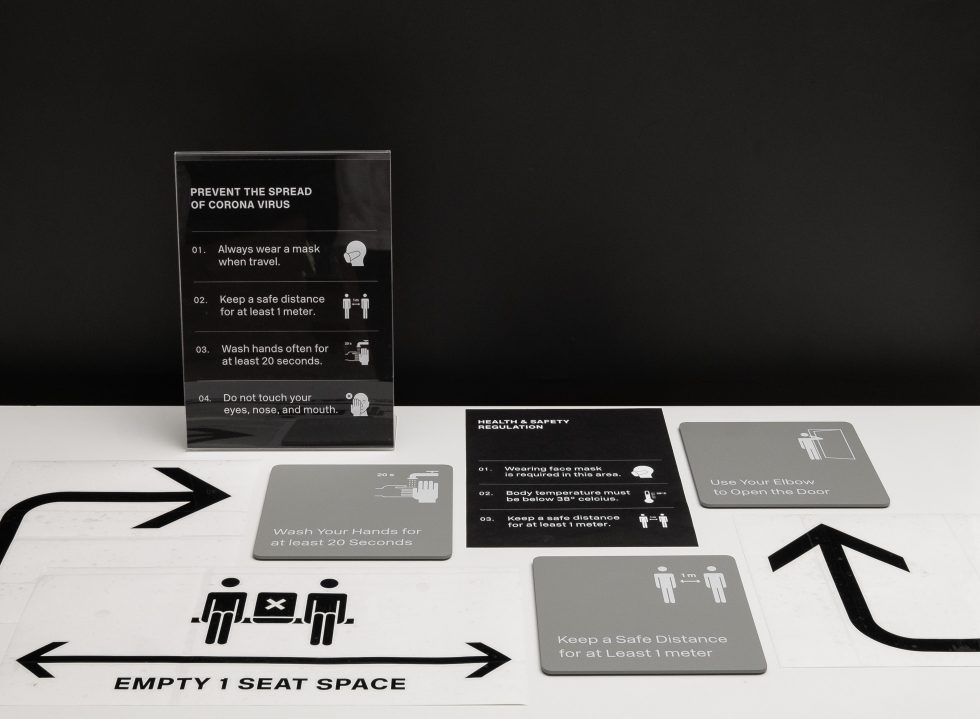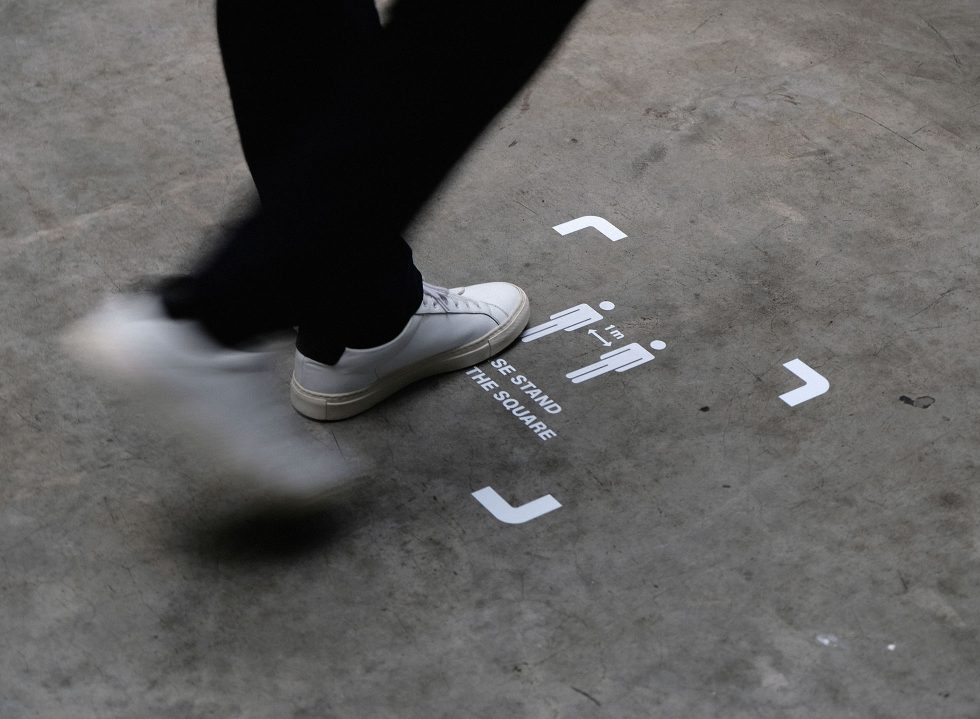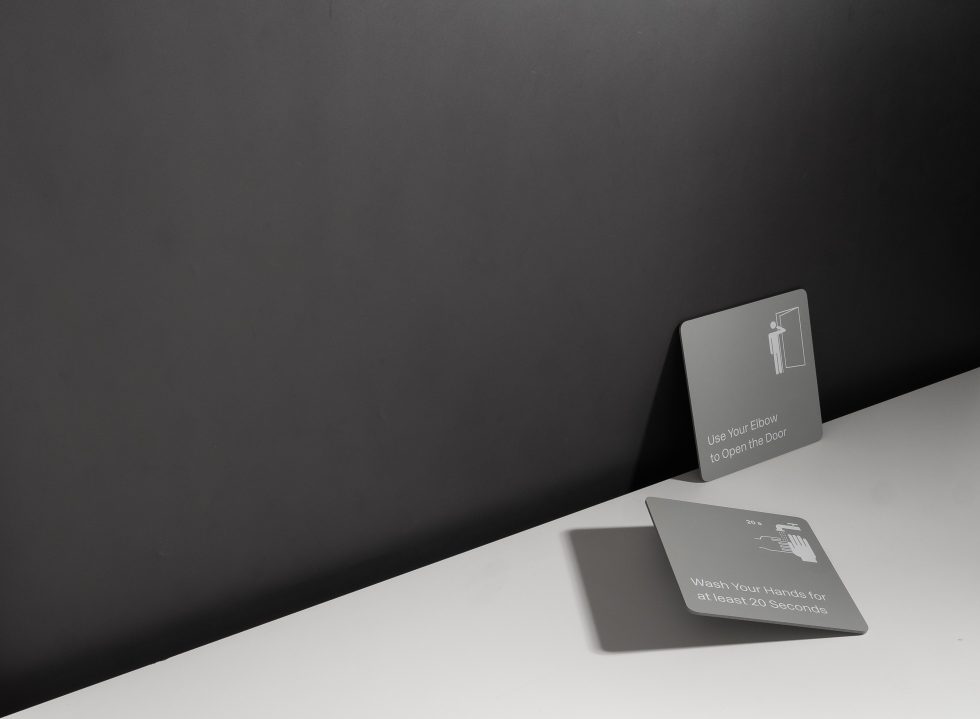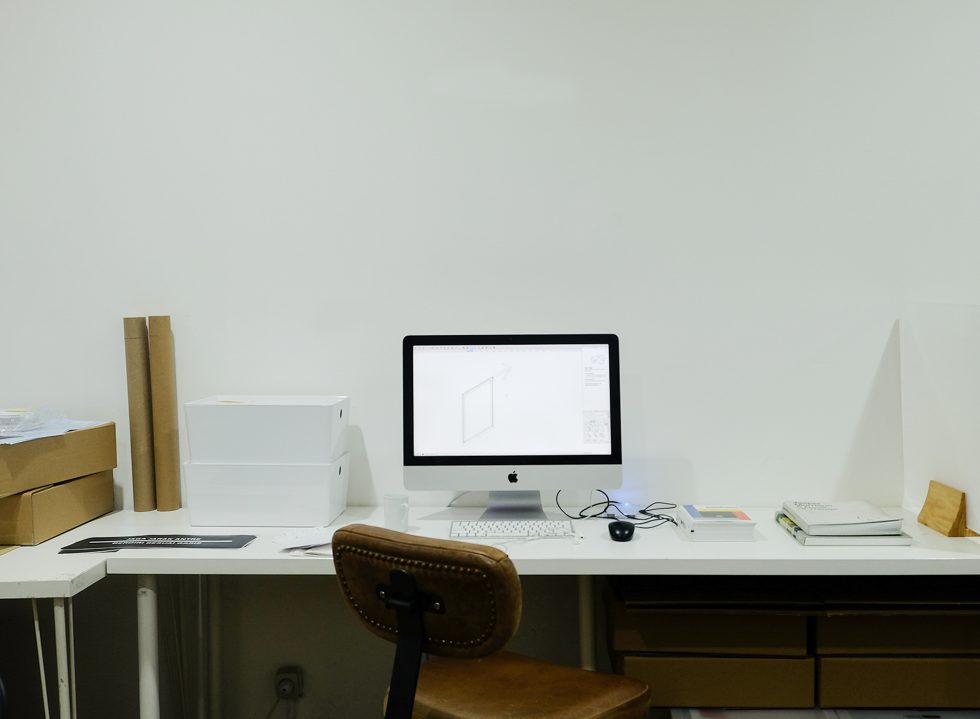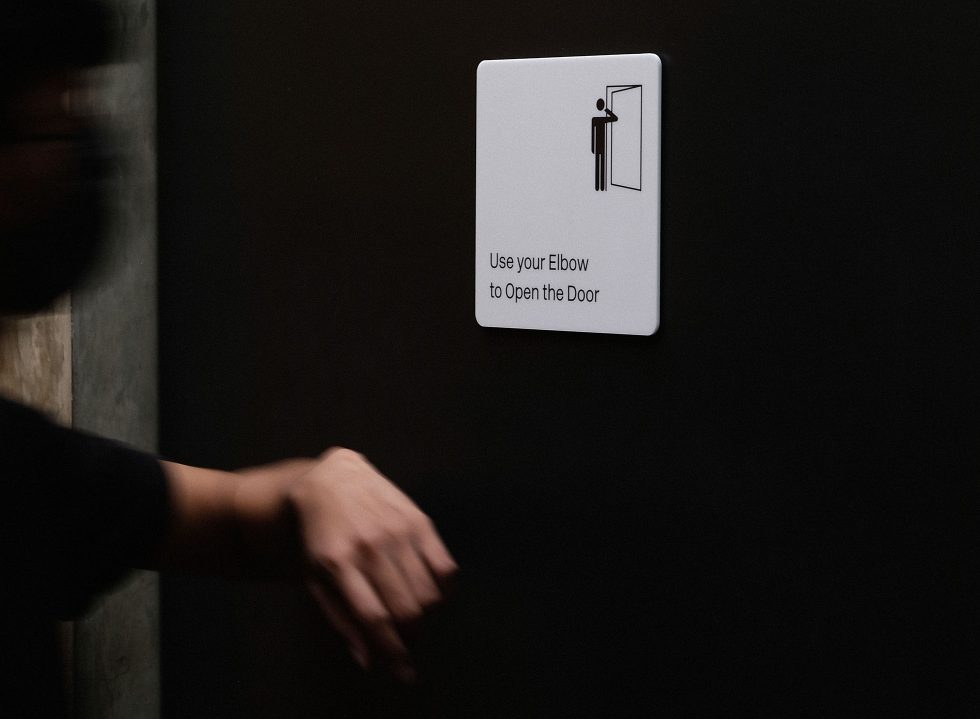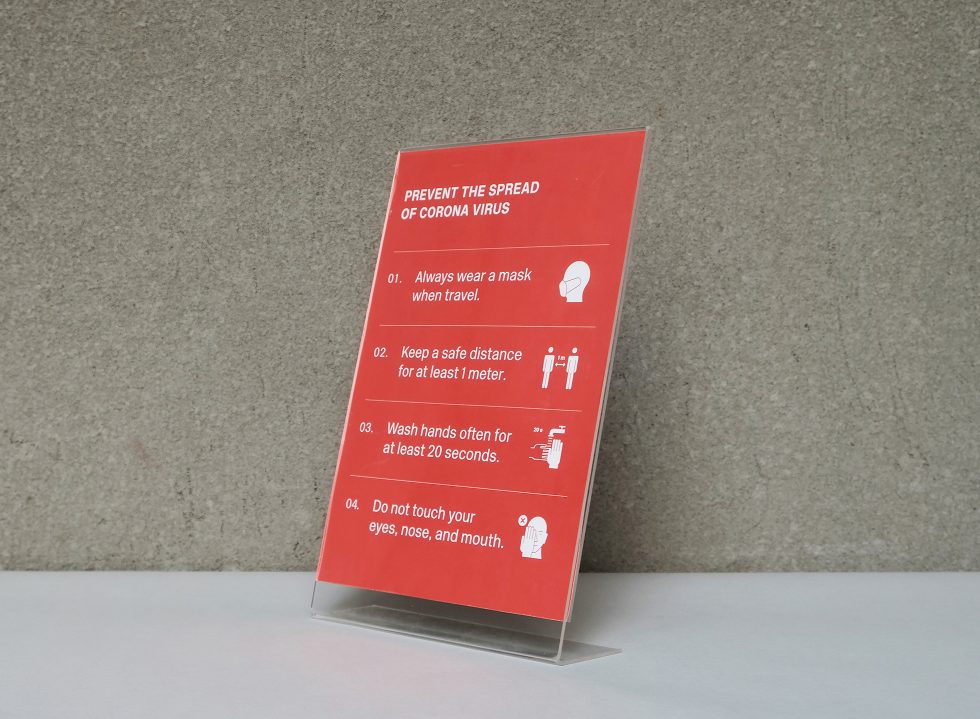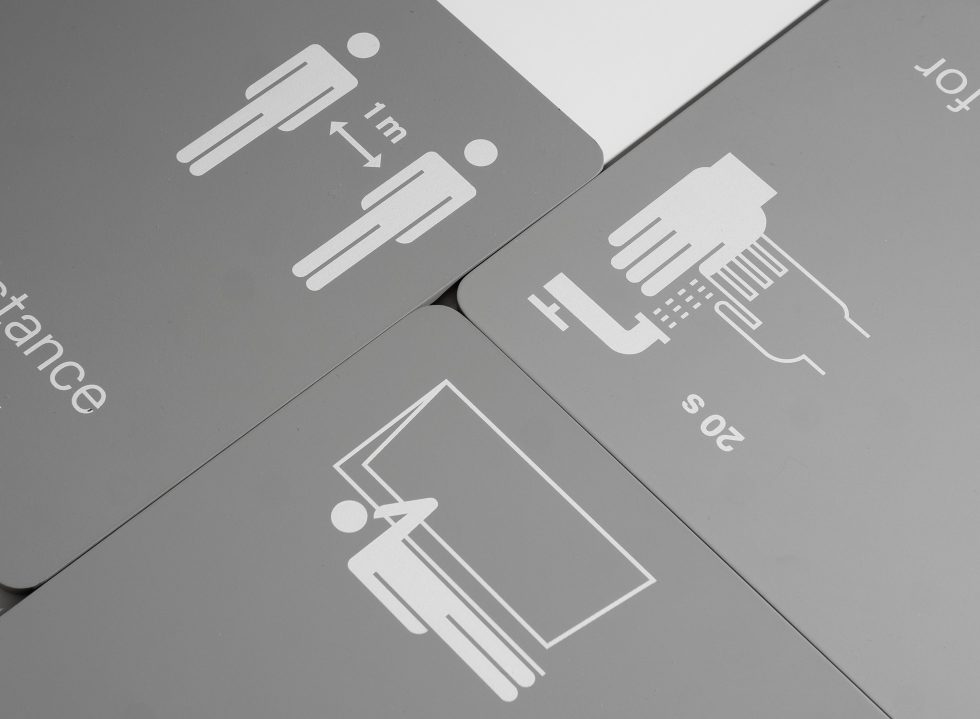It has been a while since the pandemic’s six-foot bubble started to guide the movements and interactions of people in public spaces. The required use of masks, the act of washing hands periodically, along with other safety protocols, have been the repeated mantra that permeates the daily lives of people today like a broken record. To think that just last year, these reminders would have been shrugged off, or worse, irrelevant.
But for Dari, a Bandung-based brand who offers lifestyle products such as stationeries, furniture and signages, the urgency that these simple prompts carry in the pandemic-tinged world was crystal clear.
This compelled creative director Darindra Suraji and managing director Mufti Alem to create the ‘Pandemic Series Signage’, a special-edition release of regulatory signage items for public spaces. First launched back in May, this project was made in collaboration with graphic design studio, Nusae, who has helmed projects for Andramatin and Museum MACAN.
As a brand, however, Dari was established with a different kind of urgency. The brand, which is also part of Nusae’s latest development, began with the observation that there are some aspects in the design of public spaces that have long been ignored. Dari was created upon this realisation, seeking to be the force that fulfils this “missing link in public spaces design”.
This missing link is what Darindra referred to as the objects that people encounter every day but often pay little attention to. This ranges from products as minute as a tissue box to something as functional as signages.
“How often do you find a good restaurant with inferior stainless steel or brass-plated-looking ‘no smoking’ sign?” asked Darindra, who also works as Nusae’s chief designer. “It is something essential that we see often, but slipped our attention. As a result, we never question what we could do to make these objects better functionally and aesthetically.”
To Darindra, this aspect of design — or the little essential things he called merchandise — are often left behind for its triviality, when in the same regard, they actually complete the holistic design of a place. With attention to functionality and aesthetics, Dari aims to make these objects better.
These ideas have been brewing up since 2018 when the brand was first established. But as Dari’s first product release, the ‘Pandemic Series Signage’ became their entryway into the scene. “We were just starting out on the research and development phase late last year until the pandemic hit. We found this as an opportunity to create products that are relevant to the situation whilst making our first step to the public.”
From acrylic, cutting and vinyl stickers to steel plates, the signages cover a range of cues that support the application of health and safety protocols, such as keeping the one-metre distance, using hand sanitisers and opening the door with elbows.
Available in Bahasa and English, the words are kept succinct through basic universal typography and icons, complemented with easy-looking composition. The form is kept in rounded-rectangle shapes, while white, grey and black become the main colours of the collection.
“When we design this product, we want it to be acceptable to various kinds of visual style or theme,” said Darindra. “We don’t want the existence of these signages to alternate the original design and aesthetic of a place. So visually, we made this collection to be as neutral as possible.”
Outside the urge to fulfil the need in the community, the creation of this series was also spurred by looking at the self-produced ‘pandemic signages’ that are, most of the time, poorly designed. “They lower or alternate the original design and aesthetic qualities of the place itself, with typography and readability that are not of a good standard,” said Darindra. “They are also often made with bad production quality that is not suitable for public spaces—you know, the kind that you make with mica laminated papers that crumple easily?”
Dari’s intention with this series also encompasses those who are not as well-versed in the product and design department. To bridge the need, Dari has provided a free downloadable version of the ‘Pandemic Signage Series’ on their Instagram account to help various establishments with the first step.
At first, the launch was met with lukewarm responses; establishments show no urge to invest in these products—a completely different reaction with the downloadable ones. But soon after they showcased their products at kopimanyar, a popular coffee shop in Bintaro, many places started to tap into these products.
“Many have started to realise the need for good-designed signage; not just a carelessly-typed or written text and icon, printed on a piece of paper. Until now, the response has been great, we’ve had orders from places and cities we didn’t expect before.”
In hindsight, Dari’s vision to fulfil the missing link in public spaces design is reflective of the current reality. Especially when signages like Dari’s can be the solution for today’s pandemic-ridden environment and urban living.
After all, public spaces are directly implicated in the spread of the virus and designers in these disciplines may have to approach different ideas or change the way they work to adapt to these changes, something that Darindra has also bear in mind.
“Architecture and interior design may shift at best, down to its most fundamental principles of creating their work and changing the common or usual standards,” said Darindra. “Other design disciplines may also need to rethink and reevaluate their designs based on people’s new behaviours.”
Where does Dari fit themselves in this equation? In addition to being in the same realm, their essential goal has always been to infuse the little essential things that make a space whole and intact in their presence. In this case, completing a space that is respectful of the strictures in place, while ensuring that their signages also function as a safety awareness for the public.
Today, Dari operates under the tagline of “everyday essential objects”, which Darindra claimed is still a work in progress. But the weight of motivation in this line can also evoke new prospects in what they have to offer after their first product launch.
“I think Dari is still seeking new possibilities while seeing how the market develops. From there, we’ll adjust our primary objectives to what comes along next,” closed Darindra. “There are a lot of ‘everyday essential objects’. Who knows, maybe we could be making bollard posts or pedestrian pathways in the future.”
